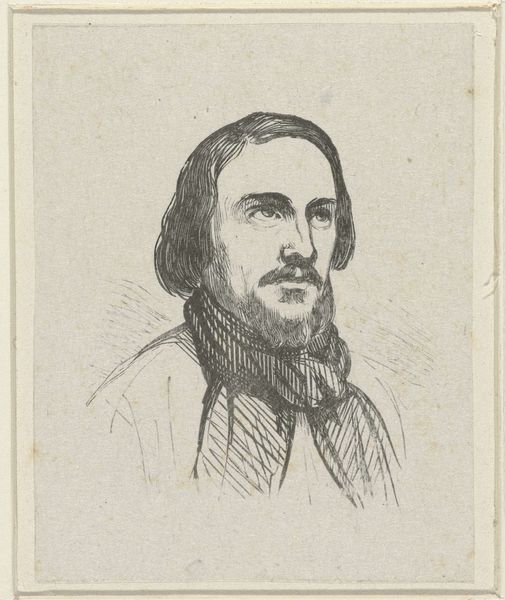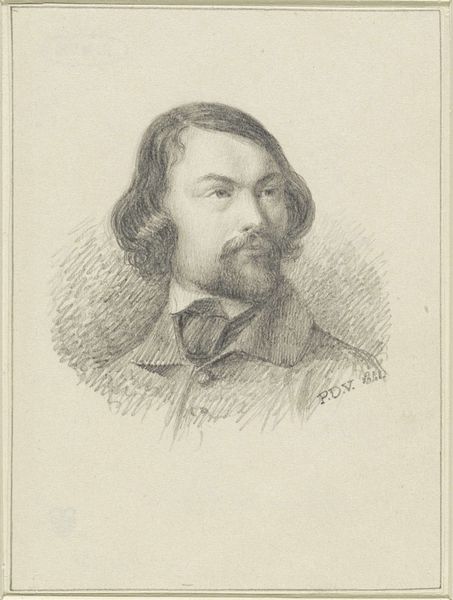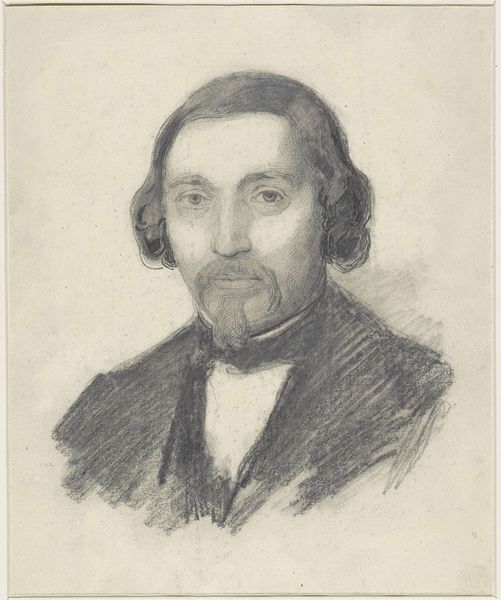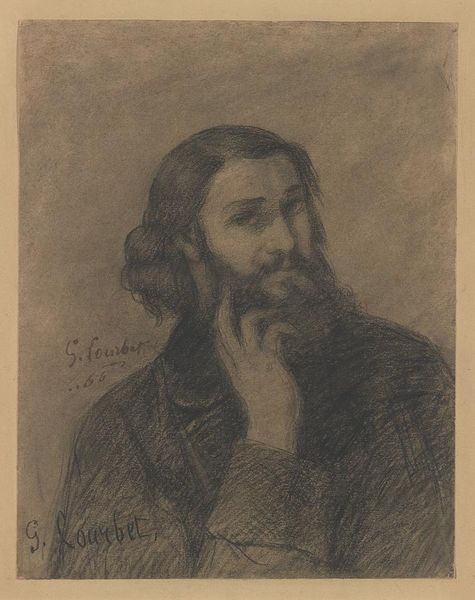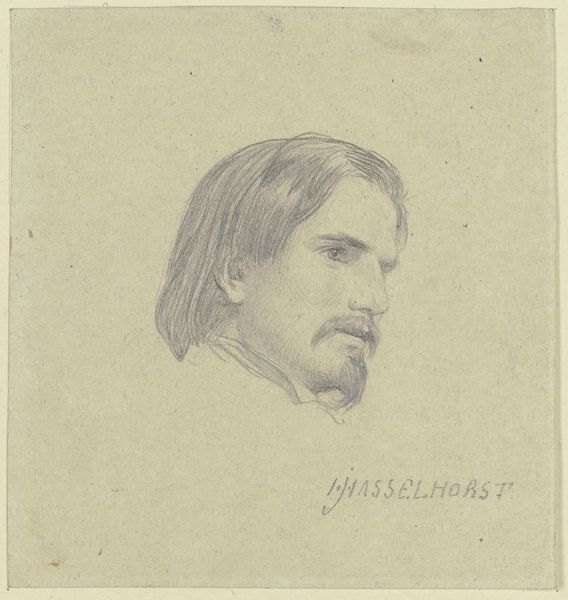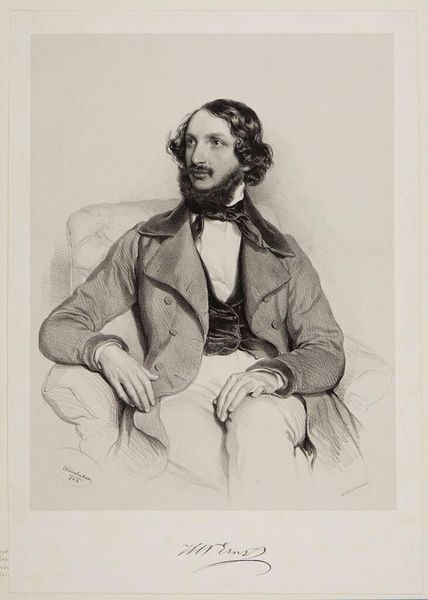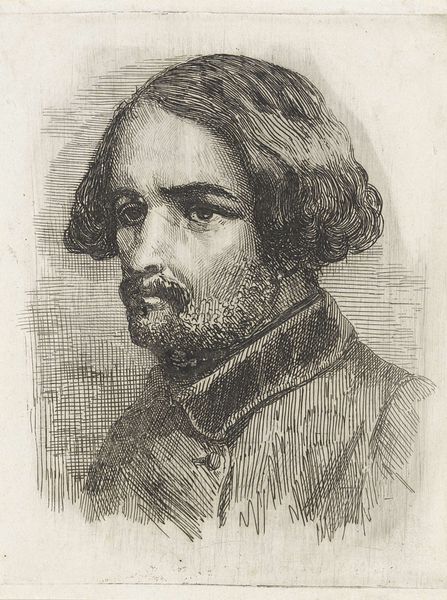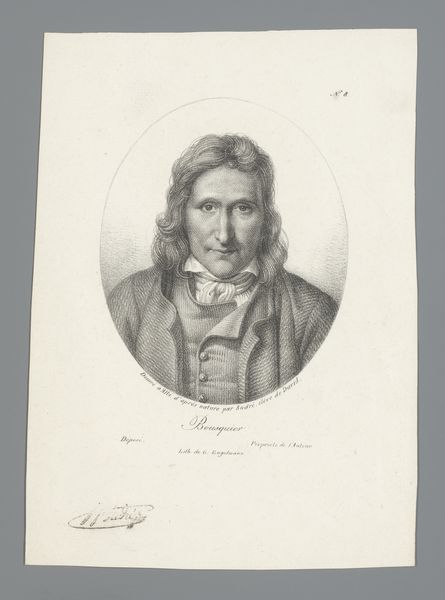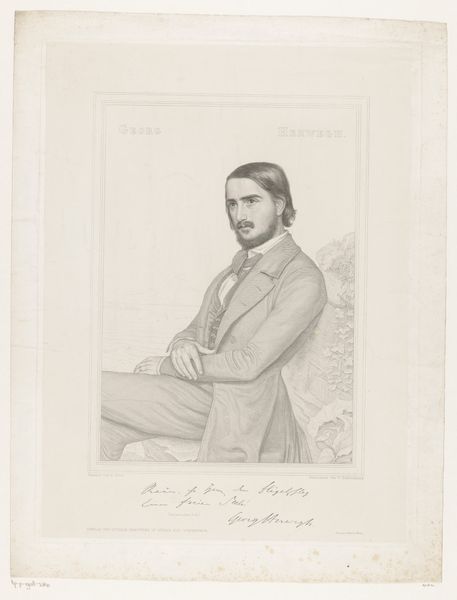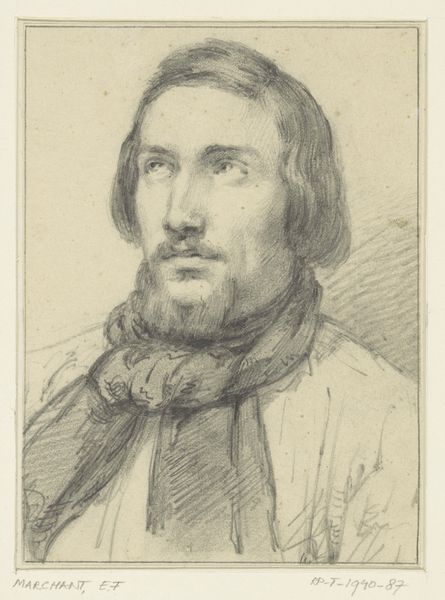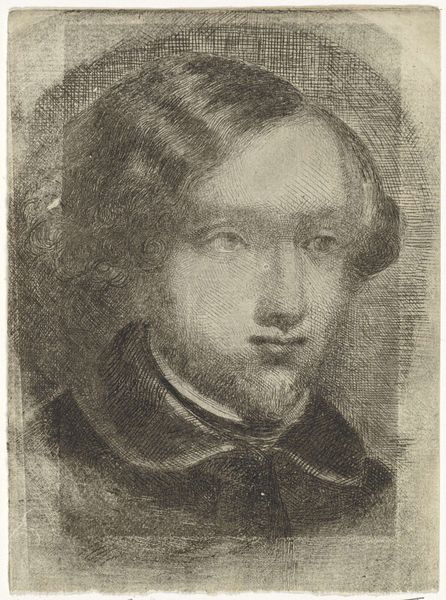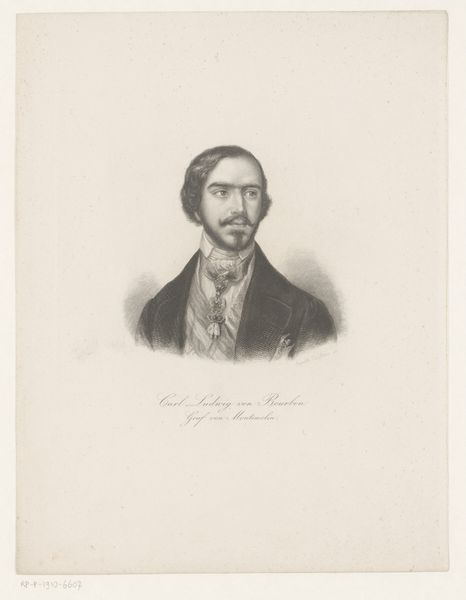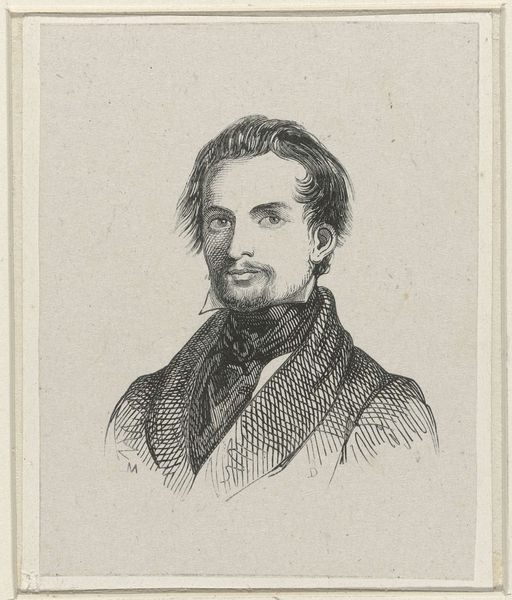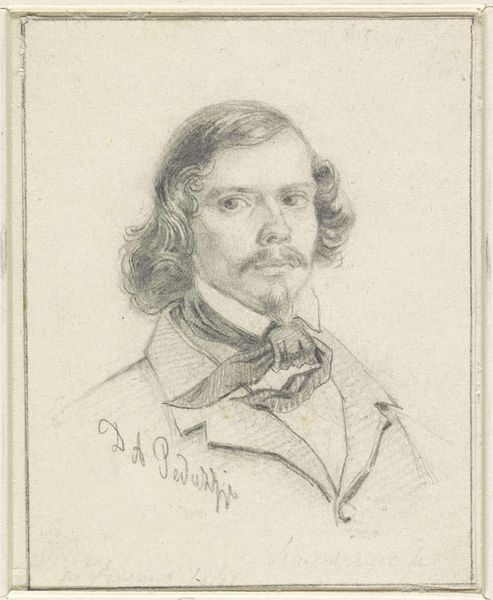
drawing, pencil
#
portrait
#
pencil drawn
#
drawing
#
pencil sketch
#
pencil drawing
#
romanticism
#
pencil
#
portrait drawing
#
academic-art
#
realism
Copyright: Public Domain: Artvee
Curator: Up next, we have Henri Lehmann's "Portrait of Anton Heinrich Springer," rendered in pencil, likely around the mid-19th century. Editor: It strikes me as incredibly delicate. The softness of the pencil work, the light shading...there's an almost melancholic air to it. Curator: Yes, and I think we can read this in the context of 19th-century portraiture practices. Think about the labor involved: Lehmann, an academic painter, employing the humble pencil. The commodity of portraiture meeting the accessibility of drawing materials, effectively democratizing the image of the individual. Editor: That’s a valid point. And yet, there’s such artistry in the cross-hatching, in the way Lehmann defines Springer’s features. The subtle gradations around the eyes, for instance, or the texture he achieves in the beard—it elevates the work beyond a simple exercise. I'd argue Lehmann carefully selected the pencil as the vehicle to enhance its sentimental appeal, using the inherent qualities of the medium to depict this academic subject. Curator: Precisely, and Lehmann was a popular portraitist among intellectual circles. Knowing that Springer was a well-regarded art historian suggests an exchange of sorts. One can see that this portrait might serve as a material exchange: Lehmann drawing a portrait of a critic who would champion his art. Editor: A very plausible insight. It almost gives us the illusion of capturing a real, palpable human presence with such minimal medium, especially when viewing the work's proportions and dimensions as a whole. Curator: The simplicity allowed a broader reach, and pencil portraits would become increasingly accessible as new forms of art reproduction emerged during that century. This image embodies that societal shift. Editor: In effect, viewing "Portrait of Anton Heinrich Springer," one gains an appreciation for the simple power of portraiture achieved through subtle aesthetic devices and artistic intent. Curator: Yes. The image resonates on various levels – a convergence of technical skill, personal connection, and prevailing social dynamics of art creation during the nineteenth century.
Comments
No comments
Be the first to comment and join the conversation on the ultimate creative platform.
